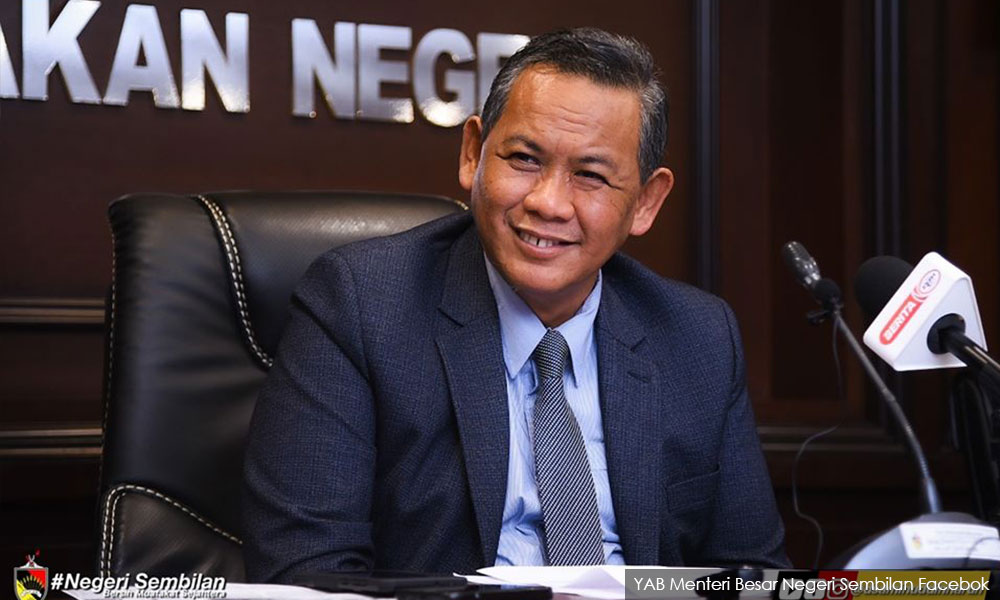If it ain’t broke, don’t fix it. But the Negeri Sembilan government wants to fix a system which needs no fixing. In the process, it is seen as dire a warning - no leased asset is safe. Even golf clubs may just disappear by a stroke of a pen.
In December last year, the state government announced that it would take over the operations of the driving range of the Seremban International Golf Club (SIGC) and will be operated by the State Secretariat.
Since the inception of the club in 1971, the driving range has been an integral part of the club and the course. To suddenly say that it would be managed by the government, has of course not been well received by the members.
To add insult to injury, the letter signed by one Norhisham Rahmat, division secretary of State Services Department, offered to lease the driving range back to the club. The figure being floated is RM5,000 a month - which members considered as exorbitant.
Why this sudden change without consultation? This is perceived by many members as Round Two of the Club vs the State. Round One was in March 2019.
On assuming the post of menteri besar after the general election in 2018, Aminuddin Harun assumed the presidency, the sale of bottled beer came to an abrupt end in the club. There were no issues with previous menteris besar.
In 1994, under veiled threats that the lease of the land could be revoked, the members voted to change the club’s constitution to read: “The President shall be the person holding the office of the Menteri Besar of Negri Sembilan.”
The president was authorised to appoint up to five of the 10 committee members. To strengthen state control, the state financial officer, the director of the Lands and Mines Department and the director of the Public Works Department were appointed ex-officio members.
Thereafter, the members elected two vice-presidents and five committee members, but they were outnumbered in the decision-making by the majority of the appointed officials.
A month after assuming the post, Aminuddin proposed to the management committee to stop the sale of beer. The appointed members in the management committee ensured the request was met. He reasoned that there was a mosque next to the club and several more in the vicinity. Furthermore, he argued that many civil servants were members.

Repeated appeals to lift the ban went unheeded which prompted members to call for an extraordinary general meeting (EGM) in March 2019 and reversed the decision.
Aminuddin subsequently sent his letter of resignation because he declared that he does not support drinking beer and does not play golf but his resignation was not accepted. By virtue of the club’s constitution, he has to remain in the post unless amendments are made.
“I do not play golf, it is just that I was asked to be president. As the chairman of the state Islamic action committee, I cannot be there (in the club’s committee),” he was quoted as then saying.
The state government, members say, was slighted by the decision of 132 members who almost unanimously voted at the EGM to bring back the sale of beer. They claim the relationship between the government which owns the land and the management committee and members of the club has since broken down.
At that time, I wrote: “In its zeal to exercise ‘control’ over everything and anything, the state government, which owned the land, decreed that it should be the regulator, controller, watchdog of the club’s affairs and, perhaps by extension, the judge of public morals.”
Two resolutions
Some history: The state government leased land in the 1970s for three nine-hole courses. Only two were developed, and in 2004, the club was asked to “surrender” land (measuring about 20 hectares) meant for the third nine for a paltry sum of RM500,000 in compensation. It had been earmarked for commercial development but plans were thwarted with a change of government in 2018.
The proposed takeover of the driving range is unnecessary and cannot be justified. The state government has neither the expertise nor the experience to operate the driving range. For 50 years, the club has been successfully operating the range through third parties. Members pay less than prevailing rates for the use of the range. Why the change then?
The state government is aware of the club’s financial situation because the state financial officer sits in the committee and it is puzzling how the figure of RM5,000 was arrived at.
Since it sits on prime land fronting the trunk road to Kuala Pilah, it has attracted the attention of developers - hence the high lease charges to force an eviction. Or it could be an attempt to lease the range to cronies.
The bigger anxiety is that the two nines sit on prime land adjacent to the already-developed Golf Course Heights - a large self-contained township.
Hence, many members fear that they will lose the club to developers who will be able to convert the land use from “recreational” to “commercial”. With the state’s involvement or joint venture, it could easily be done.

There are others who see this as a retribution because the club had openly defied the order of the menteri besar not to sell beer.
Members have requisitioned for an EGM to discuss the takeover and have proposed two resolutions. One calls for the state government to refrain from interfering with the management of the club and its facilities, such as its intention to take over management of the driving range.
It states that the move is not in accordance with decisions taken at the special general meeting held on Sept 24, 1971 where the use of the land was extensively discussed and debated. The second states that the state government ought not to demand rental as it is contrary to the decision made at the same meeting 1971.
No date has been fixed for the meeting. The members will use this as an avenue to go back in history and produce documents and records to substantiate the “no interference” undertaking given by the state government previously. They say that the assurances given in the past are binding on the current or future state governments.
The stage is set for a showdown and failing to come to an amicable settlement means a long-drawn legal battle by members to exercise and retain their rights.
R NADESWARAN says the state government must come down from its high pedestal and honour its commitments – a cornerstone of good governance. Comments: citizen.nades22@gmail.com - Mkini




No comments:
Post a Comment
Note: Only a member of this blog may post a comment.